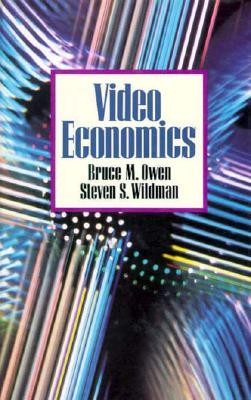
- We will send in 10–14 business days.
- Author: Bruce M Owen
- Publisher: Harvard University Press
- ISBN-10: 0674937163
- ISBN-13: 9780674937161
- Format: 16 x 24.3 x 2.6 cm, hardcover
- Language: English
- SAVE -10% with code: EXTRA
Reviews
Description
Between the late 1970s and the early 1990s the U.S. television industry transformed from a heavily regulated business to a highly competitive one, with new networks, technologies, and markets. Video Economics addresses the major issues affecting competitive advantage in the industry, including sequential program release strategies known as windowing, competition among program producers, the economics of networking, cable television, scheduling strategies, and high definition television (HDTV). The authors present the economic tools required to analyze the industry as they take up each new topic. This book will be of particular interest to students of the mass media, communication policy officials, communication lawyers and consultants, and media and advertising executives.
EXTRA 10 % discount with code: EXTRA
The promotion ends in 20d.04:28:43
The discount code is valid when purchasing from 10 €. Discounts do not stack.
- Author: Bruce M Owen
- Publisher: Harvard University Press
- ISBN-10: 0674937163
- ISBN-13: 9780674937161
- Format: 16 x 24.3 x 2.6 cm, hardcover
- Language: English English
Between the late 1970s and the early 1990s the U.S. television industry transformed from a heavily regulated business to a highly competitive one, with new networks, technologies, and markets. Video Economics addresses the major issues affecting competitive advantage in the industry, including sequential program release strategies known as windowing, competition among program producers, the economics of networking, cable television, scheduling strategies, and high definition television (HDTV). The authors present the economic tools required to analyze the industry as they take up each new topic. This book will be of particular interest to students of the mass media, communication policy officials, communication lawyers and consultants, and media and advertising executives.


Reviews